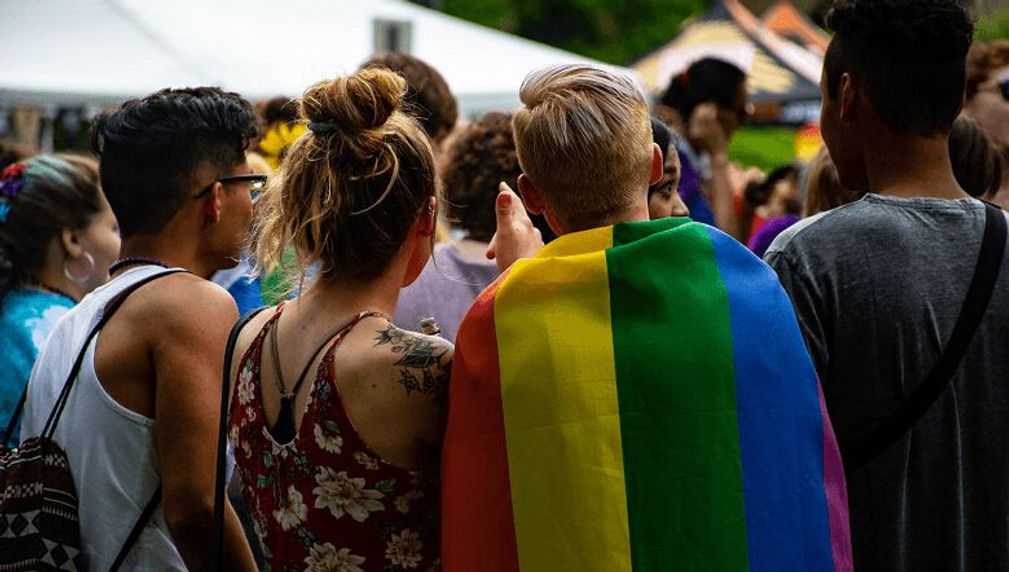Rainbow Labs - A Mentoring Program For LGBTQ+ Youth
Acting on the power of mentoring, we are launching a summer pilot program leading to a full-fledged afterschool program for LGBTQ+ youth by January of 2022. This summer, 50 LGBTQ+ youth will be paired with ten mentors. Youth will meet weekly with their peers and a mentor for formal activities such as utilizing their storytelling power and an accelerator program offering opportunities for youth to engage with LGBTQ+ professionals. Mentors will also build in informal one-on-one time to individual and uniquely identified support to their mentees.

In which areas of Los Angeles will you be directly working?
County of Los Angeles
LAUSD (select only if you have a district-wide partnership or project)
What is the problem that you are seeking to address?
The benefits of mentoring programs are not reaching LGBTQ+ youth. MENTOR National, a national mentoring and capacity building organization, states for every 5,000 youth mentoring programs only five focus on LGBTQ+ youth. LGBTQ+ youth face unprecedented challenges without mentors. In a 2019 report on the California School Climate, UCLA’s Williams Institute stated, “LGBTQ+ youth reported having less meaningful school participation, lower expectations from adults, fewer caring adult relationships at school, and a lower level of connection than non-LGBTQ+ youth.” GLESEN’s 2019 National School Climate Report follows this trend saying 32.7% of LGBTQ+ students missed at least one entire school day in the past month because they felt uncomfortable, and over 77% reported avoiding extracurricular activities. COVID-19 has exacerbated these challenges with the Trevor Project reporting in October of 2020 that 55% of LGBTQ+ youth feel depressed or anxious.
Describe the project, program, or initiative that this grant will support to address the problem identified.
In a recent report by MENTOR, findings suggest that high-quality mentoring relationships could reduce feelings of distress among LGBTQI-GNC youth, while also supporting improvements in the quality of their relationships within peer and family networks and reducing their susceptibility to involvement in problematic behavior. Grant funds will act on the intervention of mentoring. We will expand our summer pilot program's success to five high schools by January 2022. Mentors and youth will meet ten hours each week for program. Funding will support: -Curriculum Design: Curriculum will focus on storytelling and entrepreneurship. Youth will explore different ways to express their stories through podcasts, videos, cover letters, and college essays. Our second module, entrepreneurship, will focus on the elements of business development and forming relationships with LGBQT+ professionals. Youth will be given funding to support their business development idea. -Full-Time Program Manager: The program manager will support on-going programming with mentors and youth. -Youth Advisory Council: Ten youth will serve on our youth advisory council, where they'll provide feedback on our mentors and program activities. -Program Supplies & Events: We'll be hosting monthly mentor-mentee events. Program supplies will support mentors to reach their youth effectively. -Program Evaluation: A program evaluator will support the implementation and analysis of our surveys.
In what stage of innovation is this project, program, or initiative?
Pilot or new project, program, or initiative
Approximately how many people will be impacted by this project, program, or initiative?
Direct Impact: 100
Indirect Impact: 150
Describe how Los Angeles County will be different if your work is successful.
Mentors are life-changing, especially for LGBTQ+ youth who do not have near as much access to mentors as other youth. In Los Angeles, for LGBTQ+ youth, finding a mentoring program that aligns with their needs. Also, they battle the other typical program access challenges such as transportation, time, and cost. We envision a Los Angeles, where LGBTQ+ youth feel supported, safe, and empowered. No LGBTQ+ youth will face dropping out at school or feel isolated because of who they are. With our program, we will eliminate those challenges and increase access to mentoring for LGBTQ+ youth. LGBTQ+ youth will move on from our program graduating high school and college, forming deep relationships with their peers, and building the next new world-changing business In this grant year, we plan to reach 100 youth and engage 25 mentors in weekly empowering activities. Over five years, we plan to engage 1,000 youth and 500 mentors to expand our reach to additional afterschool providers.
What evidence do you have that this project, program, or initiative is or will be successful, and how will you define and measure success?
This program is in early-stage development. The foundation of our success will be how our program will need to adjust from a pilot to an after-school program. Our goals for our program include: (1) Build positive mentor/mentee relationships; (2) Build positive peer relationships; and (3) Provide an environment for LGBTQ+ youth that is safe and inclusive. To measure these goals, we'll conduct a pre an post survey with youth and mentors. We anticipate the following outcomes: • 90% of mentees report having a positive relationship with their mentor at the end of the program • 90% of mentors report having a positive relationship with their mentee(s) at the end of the program • 90% of youth participants report that they enjoyed connecting to other young people in the queer community • 90% of youth participants report that the program was a safe space for them • 90% of mentors report that the program created a safe environment
Which of the CONNECT metrics will you impact?
Social and emotional support
LGBTQ+ equity and inclusion